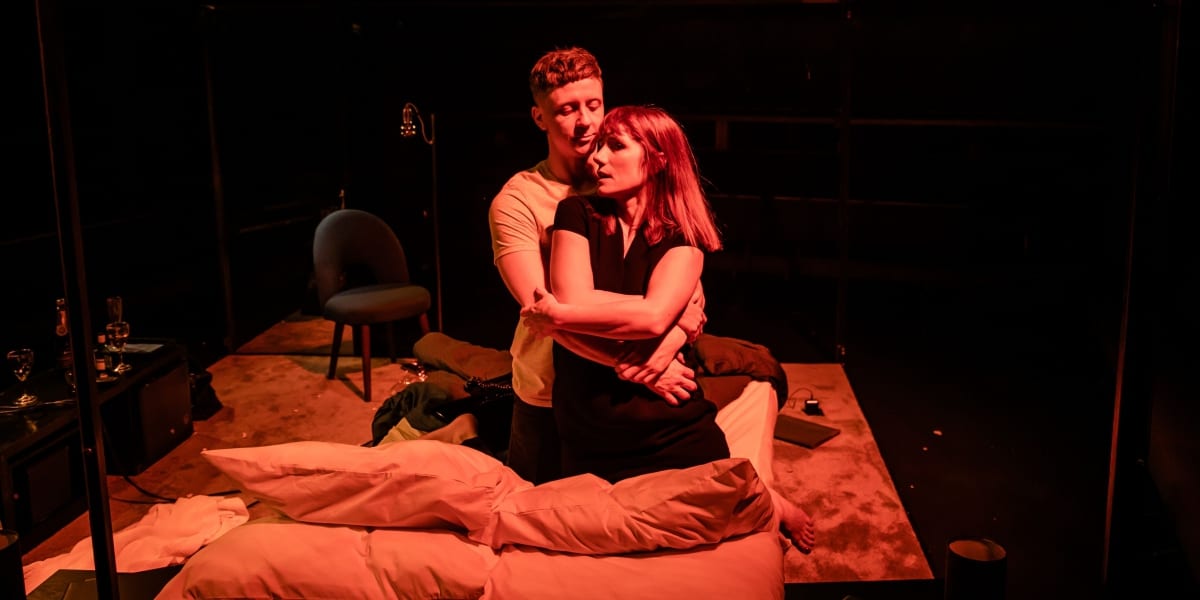Rose Lewenstein’s new play, Cougar, ostensibly tells the story of a Leila, a successful older woman (Charlotte Randle), having an unusual affair with John, an aimless younger man (Mike Noble). But what might seem like a love story is given a much broader canvas and several original twists. It manages to embrace love, sex, climate change and gender politics in a production that is sometimes baffling but always engaging. Told in a number of non-chronological scenes it shows how humans consume and, ultimately, waste the resources they are given – including love.
We discover that Leila and John’s lives are driven by incompatible pressures. Her professional goal is persuading companies to adopt corporate sustainability, with the irony is that she burns tonnes of fossil fuels in travelling the world to do so. As John points out she’s trying to save the planet but ‘we’ve circled the globe how many times now’? She also wants a relationship with John but she doesn’t want it to become love, saying ‘Just promise me you won’t, you know, fall in love’. We also see the flaw in her repeated argument that it is good to ‘think long-term and act short-term’. The reality is that their short-term actions pile up and overwhelm any long-term ambitions.
What might seem to be a rather repetitive and restrictive conceit – setting all of the action in an identical hotel room, irrespective of its actual location – is given an arresting visual dimension by director Chelsea Walker and designer Rosanna Vize. The room eventually mirrors the way selfish consumption degrades the world: litter piles up; drinks are poured away; greasy, cooked meat is manhandled and discarded. Order turns to disorder. And as the play develops it is the waste of a relationship that comes to the fore – they never find the love that might have been possible.
What the play communicates – via the vehicle of an exploitative relationship – is that however isolated we try to make ourselves, our short-term selfish actions add up. They degrade the world. We may not see it, but it happens. John begins the plays decrying the physical waste of food and wine in hotels; in the end, he laments the waste of their relationship. This is not a play that offers pat answers or passes judgement, but it does ask some very interesting questions.

